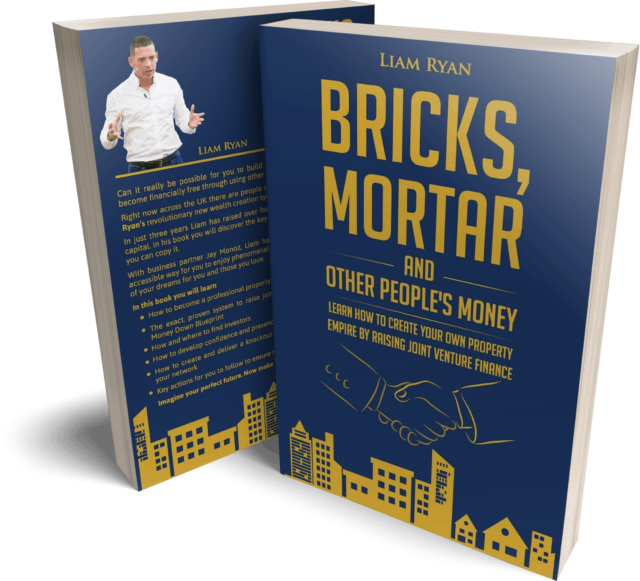2025 Investment Guide to Holiday Lets in the UK by Liam Ryan

Holiday lets can be a great way to get into property investment, and with UK-based ‘staycations’ on the rise, the holiday let market shows no sign of slowing down. But what are the latest laws and regulations around holiday lets in the UK? What areas should you be looking at for a suitable holiday let investment? In this blog, I will take you through everything you need to consider before investing in a holiday let property, from finance options to the latest rules surrounding holiday lets and more.
Table of Contents
ToggleWhat is a Holiday Let?
Holiday lets are properties rented out on a short-term basis by people taking a holiday. Holiday lets are in fact different from short-term lets – a holiday let is classed as a business and is subject to different tax rules. Holiday lets do not require a contract like residential lets do – guests are granted a ‘licence to occupy’ much like a hotel stay. A holiday let must be:
- Available for letting for a minimum of 210 days per year.
- Let out for a minimum of 105 days per year.
- Not be occupied for more than 155 days of the year.
- Not be occupied by the same tenants concurrently for 31 days of the tax year.
These rules are subject to change – as always I recommend you keep updated with the latest news on holiday let regulations.
Are Holiday Lets a Good Investment?
There have been some recent changes to the rules and tax classifications of holiday lets – see the dedicated section below for more information on this. Nevertheless, a holiday let property in a sought-after location that is competitively priced, well maintained and efficiently managed can be an excellent investment. People are willing to spend much more on a holiday let property as a regular rental property, and the profits can be much higher. Of course, only some properties can be a holiday let – the location is crucial, and holidaymakers may expect different amenities and facilities than in a normal residential let. In the next section, let’s look at some ideal locations and what kind of properties are suitable for holiday lets.
Where to Invest in a Holiday Let in the UK?
The most important factor when considering a holiday let investment property is the location. It would need to be in a place where people frequently take holidays, which can be in a city or a more rural location – city breaks can be as popular as countryside getaways. Holidaymakers will want easy access to local attractions such as beaches and theme parks, and amenities including pubs, shops, restaurants and more unless you are aiming for an ‘unspoilt paradise’ type of holiday destination. Regardless, the location should be easily accessible by vehicle. We have compiled a list of our top holiday let investment locations for you here.
What Are The New Rules For Holiday Lets in the UK?
Until the spring of 2024, Furnished Holiday Lets (FHLs) could benefit from tax breaks, however, the UK government announced in the Spring Budget that this tax regime would be abolished in April 2025, so landlords of FHLs will no longer be able to benefit from FHL tax breaks. A new Planning Use Class will also be introduced that applies to new short-term lets – find out more at the UK Government website. Many investors are looking to buy holiday lets through a limited company for tax reasons, e.g. offsetting operational costs against rental profits.
New reforms aim to give local councils more control over short-term lets to boost housing supply for locals in tourist towns. Plans are also in the works to introduce required planning permission to allow the use of a property to change from a residential property to a short-term let or holiday let. Registration schemes are also being planned to give local authorities more information about short-term lets in their area and ensure they all adhere to safety and quality standards – more news on this is likely to be announced later this year.
At the time of writing, these regulations are new and subject to amendment, so always do up-to-date research before you invest in a holiday let property.
Benefits of Holiday Lets
Some of the potential benefits of investing in a holiday let property include:
High Rental Yield
You can charge more in rental for a holiday let than for a residential property, increasing your profits. Holiday homes in popular tourist locations can generate more income in a week than long-term lets do in a month.
Increased Demand for UK Holidays
Since the COVID-19 lockdowns put a temporary end to international travel and the subsequent cost of living crisis, more and more people are opting to take holidays in the UK rather than travel abroad. The rise in popularity of ‘workcations’, in which people take a holiday and continue working remotely, means a holiday let could be more convenient than a hotel.
Your Own Holiday Retreat
You can always take advantage of owning a holiday home and go there yourself for holidays, it would cut into your potential earnings but you could choose a time out of the peak season and enjoy a fun trip yourself without having to pay for accommodation.
Drawbacks of Holiday Lets
There are some drawbacks to investing in holiday lets you should be aware of:
Inconsistent Income
You only make money on a holiday home while someone is renting it, unlike residential lets where someone will (ideally) be in the property all year round. In off-peak times of the year, you may find it hard to find visitors to your holiday let, meaning no income for you.
Increased Running Costs
There are more costs associated with holiday lets, including maintenance and cleaning as well as council tax and utilities which you will be responsible for. There could be higher wear and tear on the property and furnishings, as people will expect a holiday let to be fully furnished from beds and sofas to cutlery and glasses in the kitchen.
Management Can Be Hard Work
Unlike residential lets, holiday lets need a lot more management, as you could have new guests every week or even more often, meaning more admin work and the possibility of dealing with unruly guests or complaints from the neighbours. You could use a property management company to take care of a lot of this work, but that will cut into your profits.
Considerations Before Investing
Property Suitability
Think about the kind of property people have come to expect from a holiday let – one that is spacious, well-maintained, modern, well-decorated, and offers a more luxurious experience than a regular house. Many holiday lets come complete with hot tubs, private gardens and balconies, barbecues or even swimming pools.
Rules and Regulations
By July 2025, all holiday lets will need to be licensed, and new short-term lets could require planning permission even if no renovation work is planned. It is wise to get a health and safety risk assessment done on a holiday let property to identify and minimise the risk to your guests, especially for children, older adults and people with disabilities. A fire risk assessment is legally required for all holiday lets in England and Wales under the Fire Safety Order 2005. Gas and electrical safety certificates are not legally required but I strongly recommend getting regular gas and electrical safety checks done by a qualified technician. PAT testing is not a legal requirement for holiday homes in England and Wales, but it is mandatory for holiday homes in Scotland.
Additional Costs of a Holiday Let
As mentioned before, holiday lets have higher running costs than residential lets. Consider the extra expenses incurred by higher maintenance needs, admin work, property management, furnishing and equipping the property with everything that guests will need, as well as the usual costs of mortgage, insurance, stamp duty, and more. You will most likely have to invest some money in marketing your holiday let, whether you do it through holiday let listing websites like Airbnb or VRBO, or more independent routes.
Financing a Holiday Let
You can obtain a mortgage to purchase a holiday let just like any other rental property and there are lenders who specialise in providing finance for holiday lets. Lenders may expect a lower LTV rate of 75% or less, so a higher deposit could be required than for a standard mortgage. Some properties will require some refurbishment before they can be rented out as a holiday let, so you may need a bridging loan or property refurbishment loan to pay for this extra work. Before taking on a mortgage, be sure to get a survey done of your chosen property to accurately assess what renovation or refurbishment work it will need. Take the time to compare different holiday let mortgage products to find the right one for you and your financial situation.
Are you interested in the exciting world of property investment? Why not join me, Liam J Ryan, and other property investment gurus as one of Assets For Life’s FREE property investment events – click here to find out more.
You May Also Be Interested In...

A Guide to Selling Your Buy-To-Let Property
Thinking of selling your buy-to-let? Learn how to time the market, manage tax and maximise

Planning Permission Loopholes You Should Know About
Discover UK planning permission loopholes, permitted development rights and when you can extend, convert or
Featured Property Investment Events & Courses
The Property Deal Packaging Summit
The Property Millionaire Bootcamp
The Serviced Accommodation Bootcamp






